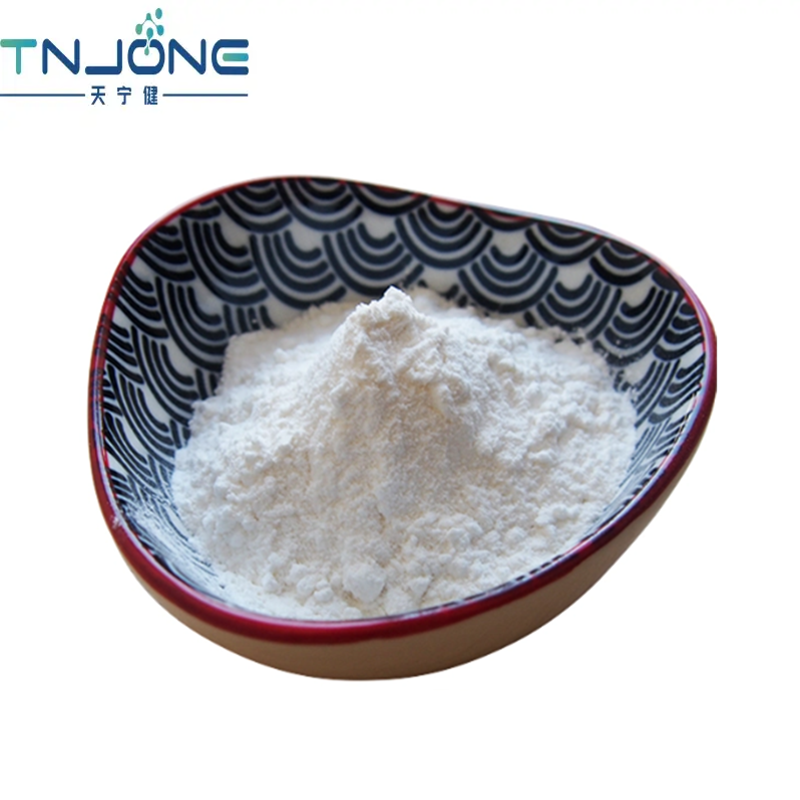Human egg cells are often surprisingly imperfect
-
Last Update: 2020-12-23
-
Source: Internet
-
Author: User
Search more information of high quality chemicals, good prices and reliable suppliers, visit
www.echemi.com
a study published December 11 in the journal American Journal of Human Genetics, a journal of Cell Press, found that more than 7 percent of human ovarian cells contain at least one non-exchange chromosome pair, suggesting that the degree of subtracting and recombination failure is very high. The results show that from the beginning of human egg cell development, a considerable proportion of ovarian cells are destined for chromosomal abnormalities. However, the frequency of non-exchange chromosomes is not affected by the age of the parent.
, like everything else, it's a pro bono announcement," said Terry Hassold, the first author of the study from Washington State University. It has long been known that the increased age of the mother increases the likelihood of chromosomal abnormalities in the egg, but this observation suggests that many chromosomal errors are not related to the mother's age. On the contrary, these errors are extremely common in human species for reasons that are not yet known. A
is a cell division that produces eggs and sperm. It consists of two rounds of division, resulting in four cells, each with only one copy of the parent chromosome and the matriarchal chromosome. Before division, the genetic material of the parent and matriarchal copies of each chromosome is recombined or cross-exchanged by subtracting.
recombination is the main cause of heterogeneity, i.e. abnormal chromosomal numbers. But the extent of the impact is unclear, as so far no one has attempted to directly measure the occurrence of non-exchange chromosomes in a large number of human ovaries (immature egg cells).
to fill this knowledge gap, Hassold and his collaborators conducted a large-scale population-based analysis of non-exchange chromosomes in the foetal ovaries. They examined a total of 7,396 ovarian cells from 160 tissue samples. To determine the overall proportion of human ovary cells containing one or more non-exchange chromosomes, they calculated chromosomal pairs that lacked the cross-related protein MMLH1.
researchers found that the odds of recombination failure were surprisingly high, with more than 7 percent of ovarian cells containing at least one non-exchange chromosome pair. The authors believe that the actual frequency of non-exchange chromosomes in human ovaries may be underestimated by conservative analysis methods, and the associated values may be as high as 10% to 15%.
the smallest autosomals (i.e. 21 and 22 chromosomes) are most likely to fail to recombine. There is also a small but statistically significant positive correlation between fetal age and frequency of non-exchange chromosomes. Observations showed a 1.6-fold increase in heterogeneity in the older pregnancy age group.
most surprising observation is that a large number of eggs contain non-exchangeable chromosomes, " said Hassold, a foreign media student. We know from previous preliminary studies and trisomal pregnancies that this frequency can be high, but it's still a bit shocking to see it directly in human eggs. For
, the researchers will look for genetic variants that may affect the likelihood of non-exchange chromosomes.
, the new results may have considerable practical clinical significance. "Based on our counseling experience, couples who have experienced miscarriages or have had extra or missing chromosomes often feel guilty," Hassold said. Our results suggest that, on the contrary, many of the errors in these chromosomes are inherent in human biology. (Source: Science.com Tang One Dust)
related paper information:
This article is an English version of an article which is originally in the Chinese language on echemi.com and is provided for information purposes only.
This website makes no representation or warranty of any kind, either expressed or implied, as to the accuracy, completeness ownership or reliability of
the article or any translations thereof. If you have any concerns or complaints relating to the article, please send an email, providing a detailed
description of the concern or complaint, to
service@echemi.com. A staff member will contact you within 5 working days. Once verified, infringing content
will be removed immediately.







